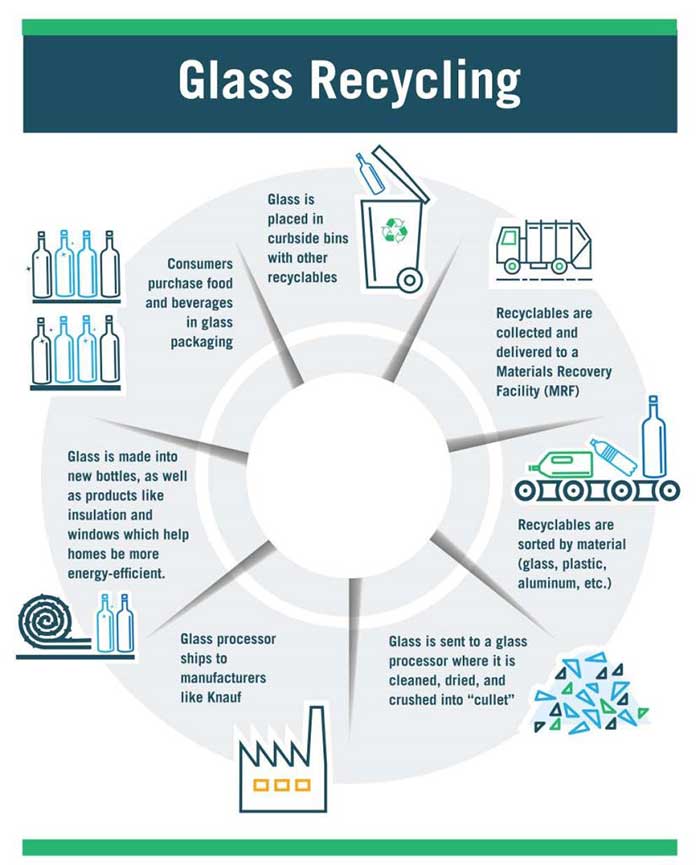Glass takes a million years to fully decompose in a landfill. Glass is also infinitely recyclable.
This Global Recycling Day, we're proud to be part of a global movement that's focused on creating a more sustainable future. By turning recycled glass into insulation, Knauf Insulation underlines a deep commitment to delivering a circular economy and reducing environmental impact.
Recycling is a critical part of that commitment, and our sustainability strategy, For A Better World, is based on the principles of the circular economy. By collecting and using as much recycled glass as possible, rather than new raw materials, we can save finite natural resources, avoid filling up landfills, and cut energy emissions – with infinite benefits for the world we live in.
Using more recycled raw materials to create better products
When you toss an empty bottle of your drink into a recycling bin, we can help it to come back as insulation. In our insulation products we use up to 80% recycled glass content. This means that we're not only reducing the amount of waste that ends up in landfill, but we're also creating high-quality insulation products that help to reduce energy consumption and greenhouse gas emissions.
Sending zero waste to landfill commitment
We're committed to reducing our environmental impact. That's why we've implemented a zero-production waste to landfill strategy across all our sites. Glasswool can be endlessly recycled into new products of the same high quality. And it’s why our insulation is a natural fit for the ‘circular economy’ and for better buildings.
Careful product selection can also help to reduce packaging waste. Our insulation range has superior compression due to its patented ECOSE Technology, which means you get more product per pack and we use less packaging for the same amount of material. Plus, the soft plastic packaging is recyclable.
Glass recycling process


